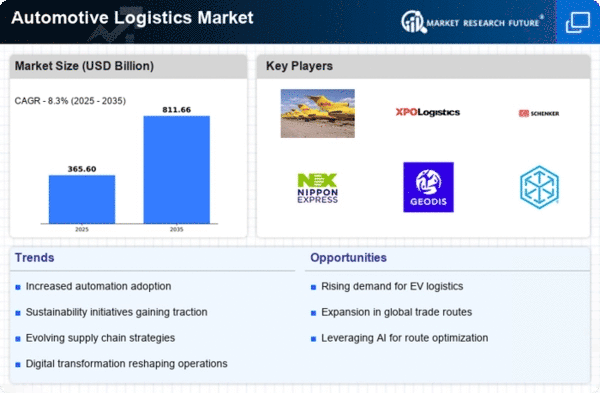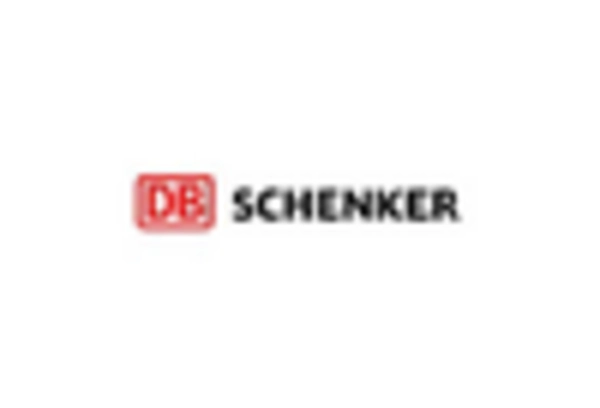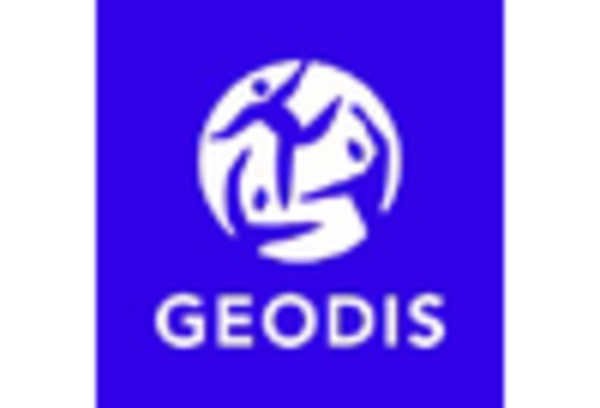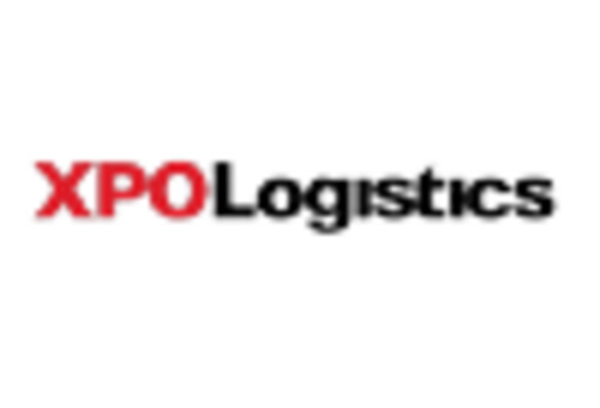Global Trade Dynamics
The dynamics of global trade significantly influence the Global Automotive Logistics Market Industry. As countries engage in trade agreements and tariffs fluctuate, the logistics sector must adapt to changing regulations and market conditions. For example, the recent trade agreements among major automotive-producing nations have facilitated smoother cross-border logistics operations. This adaptability is crucial, as the market is expected to grow at a CAGR of 2.84% from 2025 to 2035. Consequently, logistics providers must remain agile, leveraging their expertise to navigate complex international supply chains while ensuring compliance with diverse regulations.
Sustainability Initiatives
Sustainability initiatives are becoming increasingly integral to the Global Automotive Logistics Market Industry. As environmental concerns rise, logistics providers are adopting greener practices to minimize their carbon footprint. This includes optimizing transportation routes, utilizing eco-friendly packaging, and investing in electric or hybrid delivery vehicles. The push for sustainability not only aligns with regulatory requirements but also resonates with environmentally conscious consumers. As the market evolves, the emphasis on sustainable logistics solutions is expected to contribute to its growth, with projections indicating a market size of 132.3 USD Billion in 2024. This trend may further influence logistics strategies across the automotive sector.
Rising Consumer Expectations
Rising consumer expectations regarding delivery speed and service quality are driving changes in the Global Automotive Logistics Market Industry. Customers now demand faster delivery times and enhanced transparency throughout the logistics process. This shift compels logistics providers to invest in advanced tracking systems and improve communication channels with consumers. As a result, companies are likely to adopt more efficient logistics strategies to meet these demands. The anticipated growth of the market to 180 USD Billion by 2035 underscores the importance of addressing consumer expectations, as failure to do so may result in lost market share to more agile competitors.
Growing Demand for Electric Vehicles
The increasing global demand for electric vehicles (EVs) is a pivotal driver of the Global Automotive Logistics Market Industry. As governments worldwide implement stringent emissions regulations and consumers shift towards sustainable transportation, the logistics sector must adapt to accommodate the unique requirements of EVs. This includes specialized handling, transportation, and storage solutions for batteries and other components. The market for EVs is projected to reach 132.3 USD Billion in 2024, necessitating a robust logistics framework to support this growth. Consequently, logistics providers are likely to invest in innovative technologies and infrastructure to enhance efficiency and meet evolving consumer expectations.
Technological Advancements in Logistics
Technological advancements are reshaping the Global Automotive Logistics Industry, enhancing efficiency and reducing costs. Innovations such as automation, artificial intelligence, and blockchain are streamlining supply chain processes, improving inventory management, and facilitating real-time tracking of vehicles and parts. For instance, the implementation of AI-driven analytics allows logistics companies to optimize routes and reduce delivery times. As the industry evolves, the integration of these technologies is expected to drive growth, with the market projected to expand to 180 USD Billion by 2035. This transformation may lead to increased competitiveness among logistics providers, ultimately benefiting manufacturers and consumers alike.
















